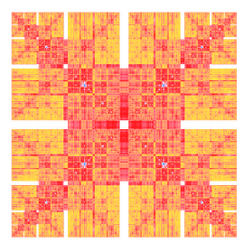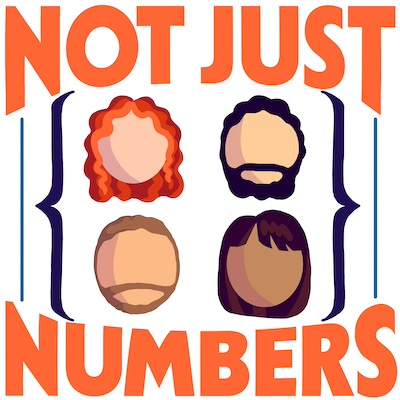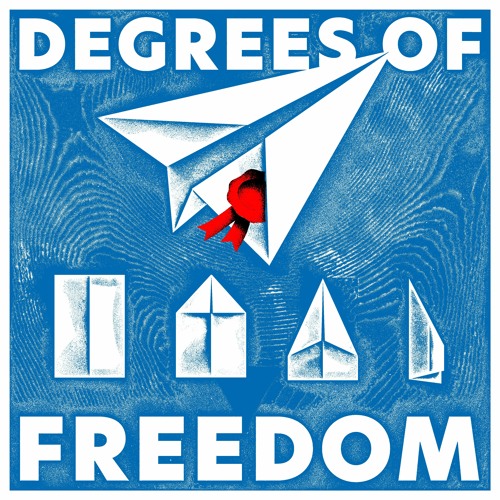A fractal spectrum of tales
- Giving Good Maths Talks
The upcoming block I have to coordinate a course on giving good talks. This also meant looking for good extra material for the students to reflect on what it means to give a good talk, what to be aware of and what tips can help to do a good job. Here is a collection of the resources I liked so far:
- MAA has a curated list of resources on giving mathematics talks which includes plenty of examples of good mathematics presentations
- There is an essay by John McCarthy on how to give a good colloquium talk with a response blog post on how to give a good 20min talk
- On the blog of the AMS there is a nice post on preparing a conference presentation, from what it means to many resources on how it can be done
- What characterizes a good presentation? There is a nice summary from an analogous course at MIT
- Terence Tao has a famous blog post on giving talks
- Jordan Ellenberg has a post with tips on giving talks that links an interesting pdf on the same topic
- A nice essay on giving talks by Bryna Kra
Let me know on twitter or mastodon (links on the left bar) if you have other suggestions!
1 min read - Apr 7, 2023 - Panel discussion on the Future of Higher Education
Recently I was invited to participate to a panel discussion as part of a symposium on the future of higher education hosted by our faculty for the launch of the Centre for Learning and Teaching.
I joined other four incredible panelists and we have been given in advance five quite broad (and though) questions on some important aspects of (high) education. I want report here my contribution, with some extra commentary at the end.
6 min read - Mar 27, 2023 - So You Are Moving to Mastodon
After Elon Musk announced its interest in acquiring twitter and even more now that he did it, there has been a growing influx of people to Mastodon, a decentralized social media platform inspired by twitter but in some sense further influenced by forums and emails.
There are a few tools and suggestions that have been shared around recently, and I thought of blogging them here to save them. The culture on Mastodon is quite different and more thoughtful than the one in Twitter. It takes a bit of getting used to it and what to do or avoid. Overall it makes it a much more pleasant experience (in my opinion).
2 min read - Nov 4, 2022 - The Man Who Saved Geometry
The other day I found an old file with links to interesting videos. Some of them were no longer available, some I still have to check, but one caught my attention and the other evening I decided to watch it.
It is a little documentary on the last conference of Donald Coexeter, and I enjoed watching it very much. You can find it embedded below, and linked above. And while collecting links for this post I have also discovered a nice writeup.
1 min read - Jan 12, 2022 - Research Minutes
Since September I am a member of the Young Academy Groningen. One of the nice perks of being part of such incredible group of people (yes, I still wonder how I got there :P) was the opportunity to take a short course on dealing with the media and to record my “research minutes”, a short, 2 minutes long, video to popularize my work.
The video was published on Twitter some time ago, and is now available on youtube. I hope you will enjoy it as much as I did enjoy recording it :)
1 min read - Nov 11, 2021 - A Micro Course on Sub-Riemannian Geometry
Last year I had the opportunity to give the first talk at the The Dutch Differential Topology & Geometry seminar (DDT&G). This was a 3 hour long event in which I had the chance to give a high-level introduction to sub-Riemannian geometry and present some interesting results and open questions partly related to my research.
In the first part of the seminar I introduced what are sub-Riemannian structures, where do they come from and what are some of the major properties and open questions, using some famous examples to drive the discussion. For this part of the talk I assumed basic knowledge of Riemannian geometry and calculus of variation and took time to provide a reading list for the interested reader.
2 min read - Oct 21, 2021 - Four Golden Lessons
The recent death of Steven Weinberg, winner of the Nobel prize in Physics and one of the most brilliant scientists of our times, made many people look back to his incredible production. In addition to some incredible eulogies, this has allowed a lot of little gems to resurface. Here I want to share one of them.
In 2003, Weinberg wrote a short note to PhD students in physics: “Four Golden Lessons”.
1 min read - Jul 26, 2021 - Material from Hamiltonian Mechanics 2021
During the current incarnation of the course in Hamiltonian Mechanics I have collected some amount of material to share with the students. To avoid losing it in the guts of our teaching CMS, I leave it here for posterity, practically copy-pasting it without edits because I am really tired :D
The books on SpringerLinks linked below are accessible from our students for free via the university proxy but in general (unfortunately) not open access.
5 min read - Mar 26, 2021 - Lecture notes on Analysis on Manifolds
In the previous academic term I had the pleasure to teach Analysis on Manifolds, essentially an introduction to differential geometry for third year students.
In the course I tried to address the topic with the perspective that some of the students would be joining also my master course in Hamiltonian Mechanics later on next year. So many of the topics go in the direction of introducing the prerequisites for studying flows, symplectic geometry and sub-Riemannian geometry.
1 min read - Mar 25, 2021 - Steven Strogatz ask me anything video
This is a follow up from the previous post. I have stumbled upon a wonderful recent video by Steven Strogatz on Twitter which I believe could be extremely helpful for current and prospective PhD students in STEM, and for their advisors!
I think it is worth every minute of it:
Consider also listening to Strogatz’ The Joy of x podcast, it gives a beautiful, humane and informative snapshot into what research and researchers are like.
1 min read - Mar 25, 2021


